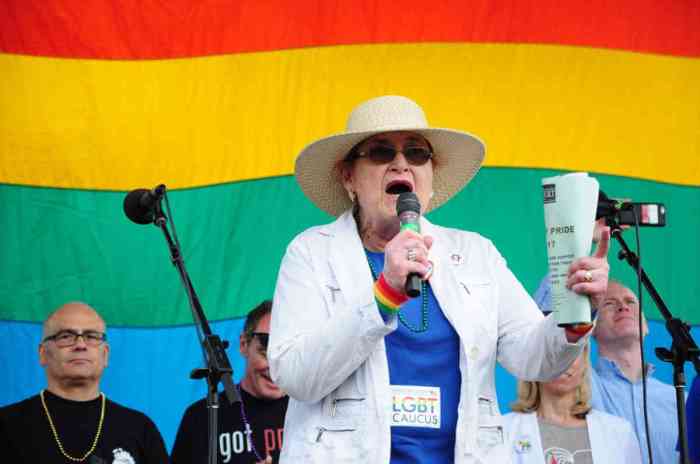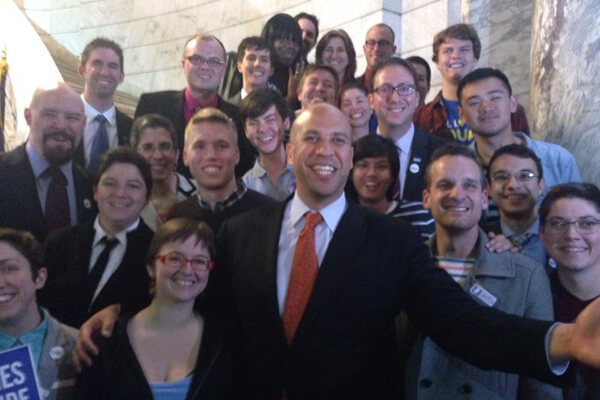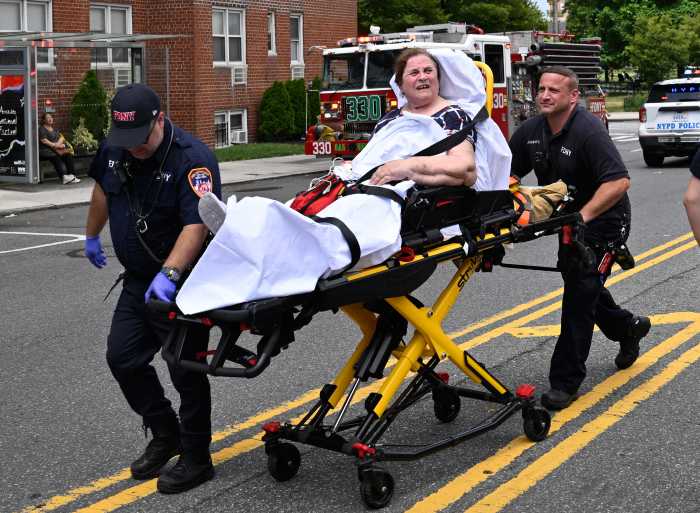In a significant ruling on August 17, the New Jersey Appellate Division, the state’s intermediate appeals court, expanded the range of “bystanders” who can claim relief for emotional distress caused by the negligence of others to include non-marital same-sex families.
A unanimous three-judge panel — taking account of the momentous developments in public attitudes toward LGBTQ families in recent decades — ruled that a Mercer County trial judge should not have dismissed the lesbian co-parent of a young child who died in a tragic traffic incident from a lawsuit seeking relief.
In 1980, the New Jersey Supreme Court first recognized, in the case of Portee v. Jaffee, that a parent who witnessed the agonizing death of her young son, trapped between an elevator’s outer doors and the wall of the elevator shaft, could sue for the emotional distress she suffered due to the negligence of the building owners and the elevator company in causing her son’s death.
The courts have gradually shed their earlier reluctance to award damages for emotional distress to people who had not themselves suffered a direct physical injury, but they have been cautious about expanding the range of such potential liability.
The 1980 Portee case limited the range of bystanders eligible to seek such compensation to those in “a marital or intimate, familial relationship” with the injured party.
In 1994, the State Supreme Court ruled that the fiancé of a man killed in a traffic incident, who had witnessed the vehicle strike his body and attempted to comfort him while awaiting an ambulance, could sue the driver of the vehicle for negligent infliction of emotional distress. The court emphasized that they were cohabiting and engaged to be married at the time, concluding that this was a sufficient “familial relationship.”
In the case decided on August 17, co-plaintiff Valerie Benning was standing on a street corner with her then-same-sex partner — and now spouse — I’Asia Moreland and their children. Benning and Moreland had been living together for 17 months and were jointly raising Moreland’s two children born (before their relationship began) and Benning’s young godson. Benning was holding the hand of two-year-old L’Maya Moreland as they waited for a traffic signal to change in Trenton. Suddenly, a fire truck collided in the intersection with a pickup truck, and the pickup truck struck L’Maya, who was “propelled” 65 feet south of the intersection and later died from her injuries.
Benning was also knocked down, and the next thing she remembered was lying on the ground and the confused panic that ensued around her, struggling to her feet and running toward L’Maya, and hearing screams from observers of the scene, then the ambulance trip to the hospital and the hysteria she suffered upon learning L’Maya was dead. The opinion quotes extensively from her deposition describing her experience and the emotional and psychological trauma she suffered.
Moreland and Benning filed suit against multiple defendants, claiming a variety of damages. The Appellate Division’s ruling involved the trial judge’s decision to grant the defendants’ motion to dismiss Benning’s claim for compensation for the emotional distress she suffered as a “bystander.”
At the time of this 2009 incident, Moreland and Benning were not legally related to each other, and Benning was not legally related to L’Maya. The couple could not marry in New Jersey, though they could have registered as civil union partners.
The trial judge had to determine whether Benning’s relationship to L’Maya came within the scope of existing precedent of an “intimate, familial relationship between plaintiff and the injured person.” The trial judge, not named in the appeals court opinion, said that an “intimate” relationship would not “suffice” unless it could be considered “familial.”
“There is a requirement that they have to be family,” that judge wrote, noting that the precedent “didn’t say family-ish or something similar to a family. It says familial and there are cases that must use the word family. It has to be family and there’s no question of fact that Ms. Benning was not. The evidence is that she was a girlfriend and she might have been part of the child’s household, but by any definition that I can find in the law about family, Ms. Benning doesn’t meet it.”
The trial court also noted, “Ms. Moreland and Ms. Benning weren’t even engaged at the time. I understand the laws regarding same sex relationships had changed over time but there was a statute that did allow for that in New Jersey and whether they could have availed themselves of any such laws in other jurisdictions hasn’t been addressed in any of the papers” submitted to the court.
In ruling to dismiss the claim, the trial judge wrote, “Ms. Benning was a part of a very small child’s life for 17 months at most. There’s no evidence that there was any permanent bond or that the relationship that she shared with the decedent was one that was deep, lasting, and genuinely intimate.”
The trial judge pointed out that the kind of evidence that would exist if there were a custody or visitation or adoption proceeding, such as a psychologist’s report, was unfortunately missing in this case.
Benning’s lawyer argued that dismissing this claim was inappropriate, because the question of “familial relationship” required a full hearing of the facts about her relationship to L’Maya and should not be disposed of as a “matter of law” without the opportunity for such a hearing.
The Appellate Division initially refused to review the trial court’s dismissal of Benning’s claim, but the State Supreme Court then directed it to accept the appeal, solely to address the question “whether Benning falls within the class of litigants entitled to bring a civil action against defendants under the tort of negligent infliction of emotional distress.”
Writing for the Appellate Division panel, Judge José L. Fuentes traced the development of this legal doctrine in New Jersey, noting that the state high court in 1994 unambiguously rejected “any attempt to restrict the claimants to married persons.”
The Appellate Division concluded that Benning had “presented sufficient evidence from which a jury could find that she and two-year-old L’Maya had an intimate familial relationship at the time of the child’s tragic death.” Fuentes’ opinion noted how social change has expanded the public’s understanding of such relationships far beyond what it was when Portee was decided in 1980.
“Thirty-eight years ago,” he wrote, “gay, lesbian, and transgender people were socially shunned and legally unprotected against invidious discrimination in employment, housing, and places of public accommodation under our State’s Law Against Discrimination. The notion of same-sex couples and their children constituting a ‘familial relationship’ worthy of legal recognition was considered by a significant number of our fellow citizens as socially and morally repugnant and legally absurd. The overwhelming majority of our fellow citizens now unequivocally reject this shameful, morally untenable bigotry; our laws, both legislatively and through judicial decisions, now recognize and protect the rights of LGBTQ people to equal dignity and treatment under law.”
The court emphasized that the trial judge should have given Benning an opportunity to provide more evidence about the nature of her relationship with L’Maya, but also suggested she would have been “better served” had her counsel introduced evidence in opposition to the defendants’ motion “with certifications from individuals who knew and saw these two women interact with these children on a day-to-day basis.”
Benning was represented on appeal by Robin Kay Lord, with Clifford D. Bidlingmaier III, of Kardos, Rickles, Hand & Bidlingmaier, assisting on the brief. The case attracted amicus participation in briefing and arguing the appeal from Garden State Equality, New Jersey’s state LGBTQ rights organization, represented by Jennifer L. Hamilton, and from the New Jersey State Bar Association, whose out gay former president, Tom Prol, also presented a brief and oral argument.






























